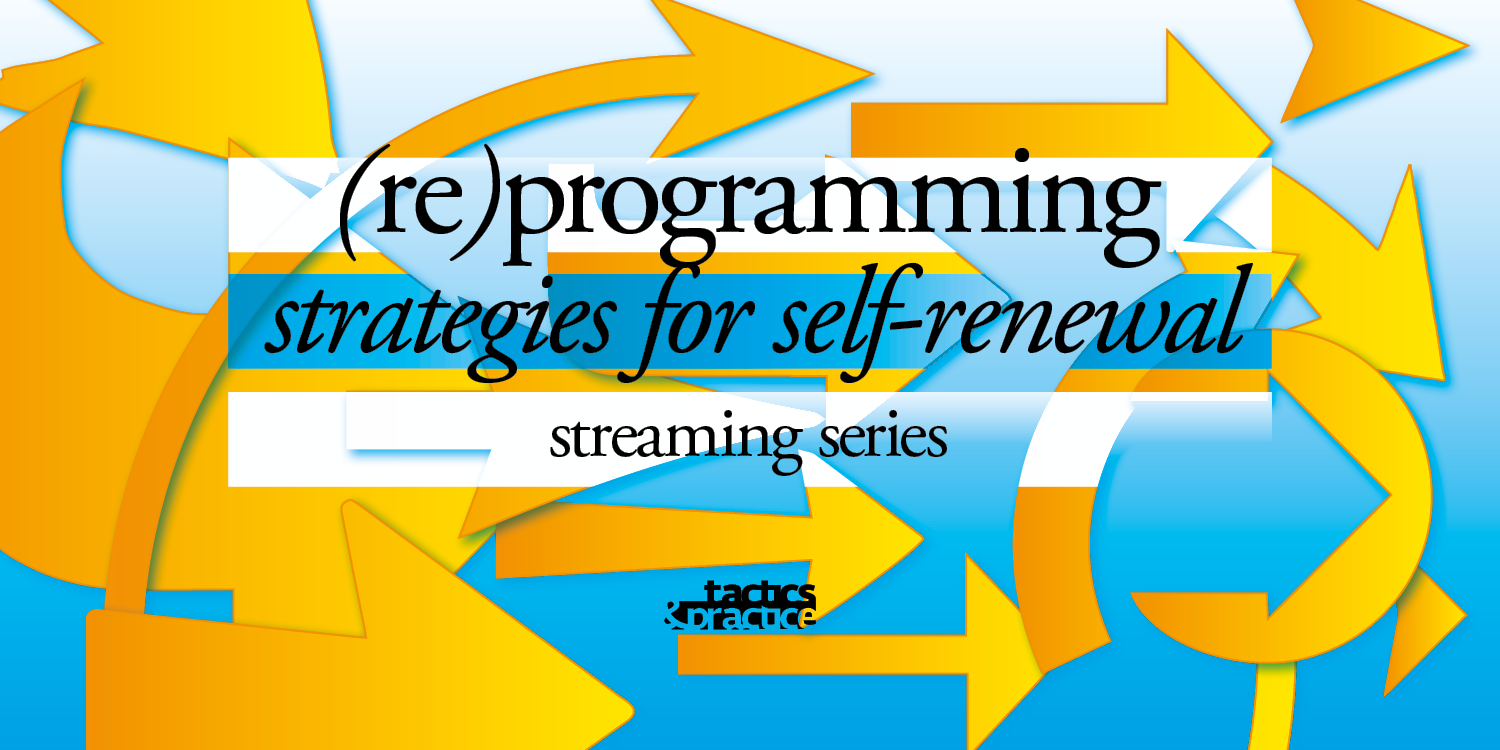We have found ourselves at the crossroads of an existential decision: do we bring the mistakes of the enlightenment to their biological conclusion or do we develop a magical capacity to self-renew?
In the tenth edition of Tactics&Practice, the seminar and conference program led by Aksioma – Institute for Contemporary Art Ljubljana, we are going to invite world-class thinkers in eight crucial disciplines to discuss the ways in which we can repair our thought and behavioural patterns in order to keep us collectively safe. Curated and conducted by writer and journalist Marta Peirano.
(re)programming
As a growing population is sharing an ever-shrinking planet, we have found ourselves at an existential crossroads: do we bring the mistakes of the enlightenment and industrialization to their logical conclusion or should we develop a capacity to reprogram ourselves as a species, in order to survive? Some of the solutions might be technical but most of the obstacles are not.
Through surveillance, manipulation and escapism, multinationals and foreign governments are using the powerful tools that could help us manage the climate emergency to manage us instead. The apocalyptic narratives of destruction, natural selection and space colonization distract us from the urgent need to manage our resources and mitigate a disaster.
Politically, the principles of liberal democracy have been put to test. Pre-fascist leaders are democratically elected, from Narendra Modi in India to Victor Orban in Hungary and Erdogan in Turkey. Following his refusal to engage in climate action and his brutal backlash against migrants and refugees, Donald Trump became the presidential candidate who won the second most votes in US history, beaten only by Joe Biden.
Aksioma’s Reprogramming series will aim to respond to the following two questions: what will it take for humanity to change its course and build a responsible future for the generations to come, and what can really be accomplished when we finally do this? The series will focus on solutions, finding tools, words or visions across the different disciplines, from energy and infrastructure to community building and AI.
We will analyse the strategies used by successful communities and proposed by social and scientific institutions to help us reset and find the way back. Not to the way it was, but to the way it should have been: an engaged community that encompasses all living beings on this planet.
— Marta Peirano
(re)programming: Trigger
What does it take to change the future?
15 February 2021 at 7 pm (CET)
The Ministry for the Future (2020), the latest novel by Kim Stanley Robinson, departs from a scientific premise: as countries keep ignoring the Paris Agreement, our planet will keep getting hotter, all the way to the human boiling point. When India is hit by a devastating heatwave, killing millions, a climate response begins to take shape. In his most bleak yet hopeful work to date, Robinson explores the limits and possibilities of human cooperation under extreme circumstances. In this TRIGGER themed conversation, we will discuss what could be the wake-up call for rethinking our place as humans on the only planet we have, and the promising tools he discovered during his years of research.
Kim Stanley Robinson is the most beloved science fiction writer alive today. The Mars trilogy, his first international bestseller, published between 1992 and 1996, was an ambitious exploration of the terraforming of the Red planet that included an exercise on comparative space politics and their impact on the survival of the human race. This commitment to exploring climate crisis management and mitigation has turned him into the leading exponent of Climate Fiction, a genre that takes place in the world as we know it or in its near future.
A prolific writer, KSR’s most popular titles include New York 2140, Aurora, Shaman and Green Earth. He also wrote 2312, the first book to be nominated for all seven of the major science fiction awards and the winner of the prestigious Nebula Award for Best Novel in 2013. His most recent novel, The Ministry for the Future, published during the pandemic, is a brutal depiction of what it would take for humans to finally face the monstrous side effects of the Anthropocene.
